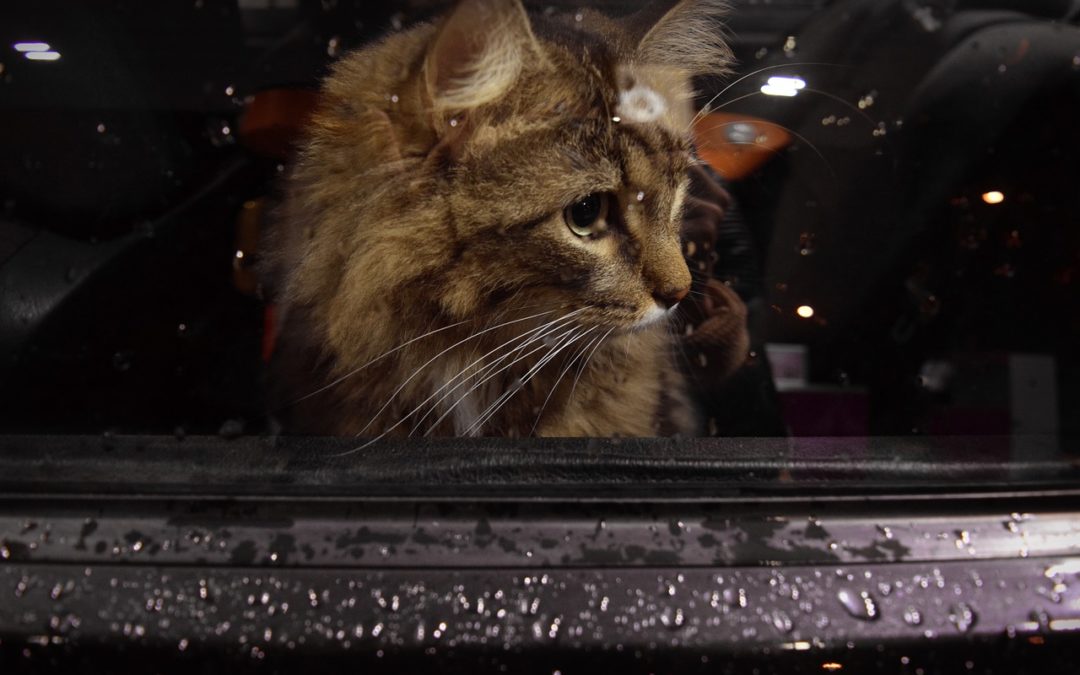During the cold winter months cats will often seek out any warm space they can find. One particularly irresistible lure seems to be the cozy confines of a warm car engine. Unfortunately, cats that seek shelter under the hoods of cars can then be injured or killed when that car is started. Help keep your own and your neighborhood cats safe this winter by following the tips below and talking with your veterinarian about cold-weather care for cats:
Keep your cat inside
The best advice regarding your own cat is simply to keep him indoors. You’ll protect him not only from engine dangers but also from becoming lost, stolen, or injured.
If you allow your cats outside they are more likely to seek a place of warmth, and underneath or inside a car’s engine are two very warm spots.
Check on your cat before taking any trips
With your cat safe inside, it should be easy for you to check on her before leaving on any trips. Maddie, a seven month old Tabby cat, somehow survived her family’s 100 mile long trip in 2009. Maddie was unknowingly stowed away during the drive that lasted for ninety minutes. Her family almost learned the hard way how important it is to check on your cat before any trips are taken. Other cats aren’t as lucky as Maddie was. In 2012, a cat named Pebbles barely survived his 15 mile trip. Pebbles needed a couple of jaw surgeries and lost the end of his tail.
Give any cats that might be hiding under your car a warning
Even with your cat safely inside, neighborhood and feral cats could still be hiding under your car. Give a little pound on your hood or slam the car door before you start [your car]. It’s always a good idea to check underneath your car to see if cats are hiding. You can also honk your horn before starting your car to help wake up any sleeping cats under or in your engine.
Give cats time to escape your car
After you’ve made plenty of noise, be sure that any cats have had time to run away. Cats can tuck themselves into the tightest of spaces and may need a little extra time to wiggle out. Fortunately, by following these precautions — and any cold-weather cat care advice your veterinarian has to offer — you can help keep cats safe during the cold weather months.
By Jason Carr, Pet Health Network Editor-in-Chief
If you have any questions or concerns, you should always visit or call your veterinarian – they are your best resource to ensure the health and well-being of your companions.






